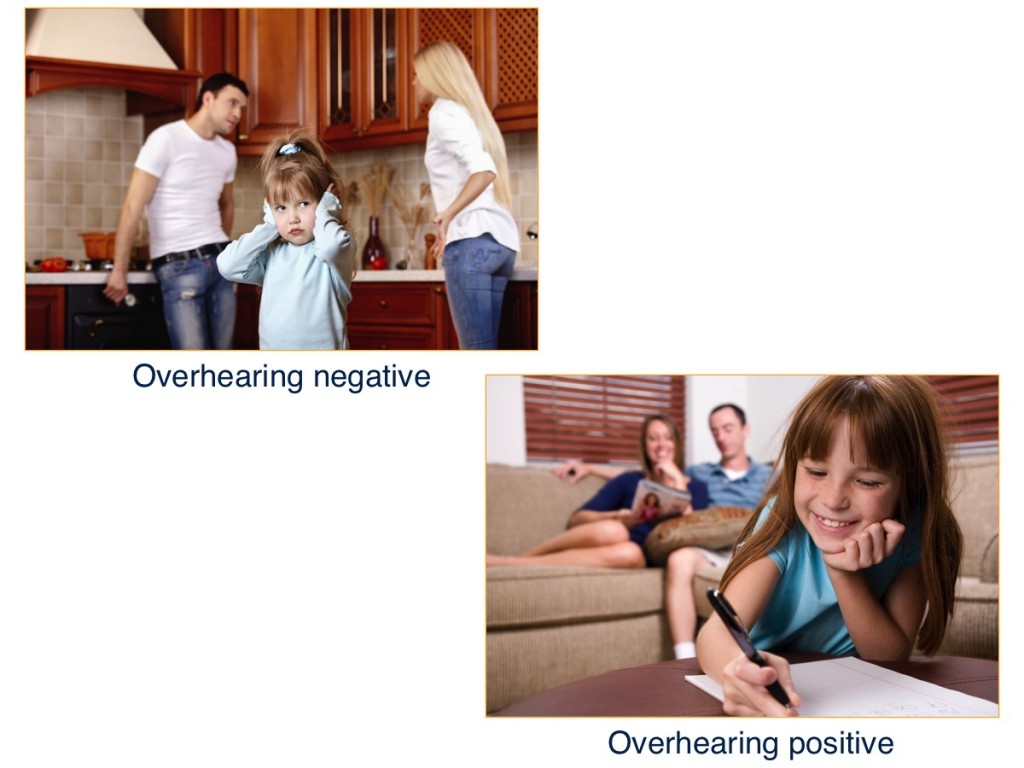
Of course negative emotions and conflict are part of everyday life. What happens when children do see conflict in the home or experience negative emotions with a peer at school? Research shows that experiencing conflict can actually have positive effects on children if children witness an appropriate resolution to the conflict. For example, in one study, researchers found that children pay attention to how their parents resolve conflict. When a conflict ended in compromise, children were much less likely to experience negative emotions such as sadness or fear. Children actually felt a positive sense of well-being. They could see that their parents have a lasting relationship that can overcome conflict.
There are a lot of benefits to overhearing positive interactions too. Imagine a child overhears her father tell her mother how proud he is of their daughter for working hard on a class project. Through positivity and praise you are being a positive role model. You will also help boost her self-esteem.
-
- Dyadic interaction
- a back-and-forth exchange between caregiver and child
- Self-regulation
- the ability to control our behaviors, emotions, and impulses
- Social emotional development
- learning to express and manage emotions and form positive relationships
- Social referencing
- looking to an adult for emotional information in an uncertain situation
- Triadic interaction
- a back-and-forth exchange between caregiver, child, and object